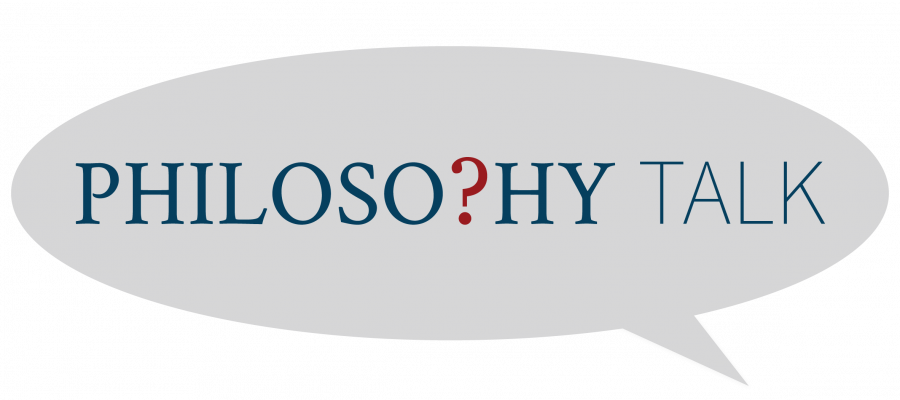Science and Gender
03
Mar 2014
Our topic this week is Science and Gender. Science used to be seen as a thing for boys only. Back in the 1980’s when students were asked to draw what a scientist looks like… forty eight percent drew a scientist with facial hair; twenty-five percent gave their scientist a pencil protector. Only eight percent drew a woman. Of course, back then the perception that science was a boy thing, pretty much matched the reality. Science really was pretty much an all boys club back in those days. The august New York Times recently published an...
Read moreReasons to Hate
18
Oct 2020
Why is there so much hate in the world? Is hatred ever morally justified? Or does hate just breed more hate? What exactly is hatred anyway? These are some of the big questions we’re tackling on this week’s show, Why We Hate. Tragically, this subject is very timely right now. Since 2016, the number of hate groups, which openly advocate violence, terrorism, and murder, increased dramatically. And in 2018, violent hate crimes reached a 16 year high in the US. This is a serious problem that we should not downplay. However, we can acknowledge this problem and, at the same time, question...
Read moreAesthetics for Dogs?
11
Apr 2017
Dogs love art! At least, when that art is designed with them in mind. The Huffington Post reported the first ever canine-centric art show, created by London artist Dominic Wilcox. To help him design the exhibit, Wilcox did a lot research about the canine visual system, and added various scents to the artwork. Judging from the photos, the dogs looked engaged by the art.“The dogs seemed to love their visit,” Wilcox told The Huffington Post. “Tails were wagging like crazy at the giant dog food bowl filled with brown balls. They were jumping in and out of...
Read moreThe Language of Responsibility
10
Jun 2011
By the language of responsibility, we mean the way we report events for which someone might be held responsible --- events for which someone might be blamed, or praised. For example, in reporting a famous event witnessed by millions of people on TV, I might say "Justin Timberlake ripped off Janet Jackson’s blouse, revealing her naked – uh --- chest." Well, actually, her right breast, not to be overly euphemistic. I’m describing an action for which Timberlake might be held responsible, and with him CBS, for exposing the young, innocent Super Bowl watchers...
Read moreParfit and the Selves That Matter
10
Apr 2023
Derek Parfit was a really interesting thinker when it came to identity and the self. He had a particularly cool thought experiment involving tele-transportation. Suppose you’re on your daily commute to Mars. You’re about to get beamed up, but something goes wrong—the transporter makes a copy of you on Mars, like it’s supposed to, but it forgets to vaporize you back home. So now there are two of you. And if there are two of you, the question is which one is the real you—the you on Earth, or the you on Mars? To some the answer seems obvious: it’s the original you on Earth. After all, imagine...
Read moreWhat is a Culture of Victimhood?
20
Sep 2015
A few thoughts about so-called cultures of victimhood and whether it's a new, old, or even real phenomenon, prompted partly by recent "debates" over trigger warnings, but also by our recent episode on the Changing Face of Feminism. I put "debates" in quotes like that because I think of the debates more as heated exchanges. Way too much talking past each other and way too little sympathetic listening has gone on.But enough of that. I start with the observation that it's surely true that there have been victims as long as there have been humans...
Read moreDoes Reputation Matter?
15
Nov 2018
How much should we care about our reputation? I think that’s a really difficult question. One can easily imagine a Stoic telling us not to care at all: it’s not something that is under our control, and so our job is simply to learn not to worry about it. We should just strive to live a good life, and leave others to decide what they think of us. In the immortal words of Stoic philosopher Taylor Swift, haters gonna hate, hate, hate, hate, hate. Still, it’s not clear to me that reputation is something that is entirely out of our control. Yes, our enemies can make up all kinds of unpleasant...
Read moreMisogyny and Gender Inequality
23
Feb 2018
This week we’re thinking about misogyny and gender inequality. All over the world, men enjoy power and privilege relative to women. It’s always been that way, and probably always will be. But one could also have more hope, given that in some countries women have made a lot of progress. A hundred years ago, women in the US couldn’t vote. Now you find women occupying positions at the very top of the social hierarchy. There are women CEOs, women scientists, women lawyers, women senators. Then again, one might also think the #MeToo movement shows how far we still have to go. Women are still...
Read moreA Puzzle About Sacred Values Part II
08
Nov 2019
I wrote in a recent blog about sacred values, which seem to have puzzling features. As noted, Scott Atran’s 2010 book Talking to the Enemy chronicles his anthropological work among Muslim terrorists in Indonesia. In one study he discusses, he gave his informants this problem, for which each informant would have to choose between two of the three options: Complete a successful, effective suicide bombing attack. Complete a successful, effective non-suicide bombing attack. Complete a holy, once-in-a-lifetime pilgrimage to Mecca. The puzzle arose from the fact that...
Read more[VIDEO] Contrastivism—A Revolution in Philosophy?
21
Mar 2017
First proposed by Jonathan Schaffer, contrastivism is an alternative approach to traditional philosophical questions that aims to dissovle rather than solve philosophical puzzles. It claims that philosophers have not been explicit enough in their questions, suggesting instead that questions must be framed in relation to relative contrasts, which yields more complicated answers. Simply asking, "Did Person X perform ethically in Situation Y?" does not cut it for the the contrastivist! Walter Sinott-Armstrong of Duke University introduces contrastivism in...
Psychopathy and Evil
12
Jun 2017
There is a certain diagnosis considered rare and nearly untreatable in the mental health community: psychopathy. Of course, a small amount of psychopathy may be socially advantageous. Consider the cool and collected CEO or saw-toothed lawyer. However, extreme cases illustrated by the fictional Patrick Bateman of American Psycho or the not-so-fictional child, Samantha from the June 2017 issue of The Atlantic, reveal that psychopathy is not only chilling but highly dangerous. Psychopaths exhibit physiological abnormalities in addition to behavioral ones. As a result,...
Read moreThe Moral Costs of Markets
01
Jan 2011
This week begins both a new year and a new season of Philosophy Talk. Hard to believe, but we're into our 8th season. It's been a great ride so far and we hope to keep building the program. To launch a new season and a new year, we take up the topic of free markets, in particular the moral costs of free markets. Free markets are, on balance, wonderful things, I think. When they're truly open and free and not monopolized by a few big players, or overly regulated by excessively intrusive governments, markets are amazingly efficient ways of...
Read moreThoughts on the Reader
14
Feb 2009
Thanks to everybody who made our First Annual Dionysus Awards Show such a success. It was a lot of fun. We got lots of great input from our listeners. If you haven't heard the show, be sure to check it out. We're trying to get it picked up as pre-Oscar special by stations throughout the public radio system. Wish us luck with that. Anyway, I thought I'd follow up a bit on the discussion of one movie in particular -- The Reader. David Thomson -- who was originally scheduled to be our guest but had to...
Read moreThe Philosophy Talk Magical Mystery Tour
10
Nov 2005
The Philosophy Talk team just finished a brief stint "on the road." On October 27th, we taped a show in front of about 200 Stanford Alums up in Sacramento on behalf of the Stanford Alumni Club of Sacramento. The topic was "Progress and the Environment." Our guest was Terry Tamminen, formerly head of California's Environmental Protection Agency and currently Cabinet Secretary (Chief of Staff, roughly) to our beloved Governor Arnold Schwarzenegger. A week later, we did another live event -- Backstage Live With Philosophy Talk. This time we had a smaller audience of about 50 KALW contributors,...
Read moreTeaching Philosophy: The Answer to Automation?
11
Jan 2017
In our annual year-in-review show, John and Ken were joined by political theorist Margaret Levi to discuss what the future looks like for workers when technology and automation are putting so many out of work. The particular technology discussed on The Examined Year 2016 was driverless vehicles, as there were some major advances (and some setbacks) in that area last year. But that is just part of a bigger trend in automation that is threatening jobs in many sectors. In The Guardian this week, teaching philosophy to children was suggested as the way to prepare future...
Read morePhilosophy as Therapy
23
Oct 2014
A lot of philosophers I know need therapy. I can’t think of too many I know I would want to be my therapist, however. What do philosophers know about therapy? But leave philosophers aside for a minute. How about philosophy itself? We must grant that people have a lot of irrational beliefs, and that these beliefs can lead to unhappiness of all sorts: anxiety, fear, depression, and the sorts of things for which therapy is needed? So if philosophy can undermine those irrational beliefs, and thereby remove the anxiety, fear,...
Read morePantheism
23
Feb 2012
Pantheism is the view that the world is either identical to God, or an expression of God’s nature. It comes from ‘pan’ meaning all, and ‘theism,’ which means belief in God. So according to pantheism, “God is everything and everything is God.” This may sound like a familiar Judeo-Christian concept, namely God’s immanence, which is the idea that God pervades or is ever-present throughout the universe. However, pantheism differs from traditional theistic religions in two important ways. First, pantheism rejects the idea that God is transcendent....
Read moreOn Awesomeness
27
Aug 2021
Is “awesome” just an overused word for things we really like? Or does it refer to a particular kind of excellence? Would the world be a better place if we all tried to be more awesome and less sucky? This week, we’re thinking about awesomeness. As an immigrant to this country, it seems to me that Americans love to call everything and anything “awesome.” Once upon a time, it used to mean inspiring fear or awe, but now it seems it’s just a word that tech bros and valley girls use for things they like. Of course, just because a word once meant something in particular, it doesn’t follow that...
Read moreFinding Meaning in a Material World
18
Feb 2016
Modern science tells us there are no souls and nothing transcendent. There’s only dumb matter and energy, swirling aimlessly through the void. We humans are nothing but temporary arrangements of such matter – gone and forgotten in the blink of the cosmic eye! But what, then, is the point of it all? What, then, is the meaning of human life? That’s the question we’re grappling with today. It’s an urgent question. But I do worry that it may lead us into a lot of anguished wailing and gnashing of the teeth. What if life really does have no meaning...
Read moreThe Birth of Black Feminism
30
Sep 2024
Anna Julia Cooper was only the fourth African American person in history to earn a PhD, after having been born into slavery. She went on to write A Voice from the South (1892), a landmark book which influenced later thinkers such as Frederick Douglass and W.E.B. Du Bois. Among other things, it anticipated Du Bois's discussion of “double consciousness”: in a racist society, she wrote, Black people can easily end up seeing themselves through the eyes of their oppressors. You see yourself not just your own way but also someone else’s way (hence the term "double...
Read moreWatch Where You Point That Thing
16
Mar 2015
The recent assassination of cartoonists of the publication Charlie Hebdo was deplorable. Producing humor that helps us deal with the day-to-day stress of modern living should not be a life-threatening occupation—even if it is the traditional tasteless French “gouaille” humor, which is intentionally outrageous and offensive. Satire is a good tool for social commentary. Satire doesn’t (usually) kill anyone. It is an irreverent rebellion against the target’s power and influence. The fact that a satirist has made us laugh about something forces us to at least wonder if there is some truth in...
Read more[VIDEO] The Slippery Slope
16
Jan 2018
The slippery slope argument is an argument where one action is argued to start a chain of events that will result in undesirable consequences. Take, for example, the argument that "If gay marriage is allowed, then people will want to marry objects or animals." When is the slippery slope argument fallacious and when is it—if ever—compelling? This video from Wireless Philosophy gives a helpful explanation of the slippery slope argument and how to avoid committing a logical fallacy. Watch it here: https://www.youtube.com/watch?v=yxylBjtzMNQ
What Is Reading?
10
May 2019
This is an important question, but there is a surprising lack of research in analytic philosophy on this topic. To be fair, considerations about reading are central to Ludwig Wittgenstein’s discussion of rule-following in his later work, especially in the Philosophical Investigations. This discussion is rightly famous, but not because it is about reading in particular. What it is to follow a rule is a deep and important issue in philosophy. But its attention to reading as such has gotten lost by the wayside. How hard can it be to say what reading is? We all do it, every day, in at...
Read moreDistortion in Philosophy
14
Jun 2018
Philosophy has, of course, become more diverse in recent years, with more women and people of color entering the field. However, that hasn't changed the lack of diversity in the canon of philosophy. In particular, as Ray Briggs, Stanford philosophy professor and featured contributor on our blog, argues, some of the philosophical examples used over and over again are misogynistic, or rely on false hypothesis. Briggs worries that “when most of the authors we read are white and male, some aspects of the subject matter get distorted, and it’s hard to tell where the essential stuff ends and...
Read moreA Pandemic of Dreams
06
May 2020
Most of the people reading this will have been in lockdown for weeks now. For many people, this has taken a psychological toll. Some of us have been trying to manage the impossible tasks of working from home with home-schooling and childcare. Others have felt themselves enclosed in a bubble of boredom, and have resorted to jigsaw puzzles and binge-watching television to get some relief. Still others have taken advantage of the slowed-down pace of life to learn a new skill—to make sourdough bread, to tackle a new language, or to become musically proficient. Some of us are enduring the...
Read more


















